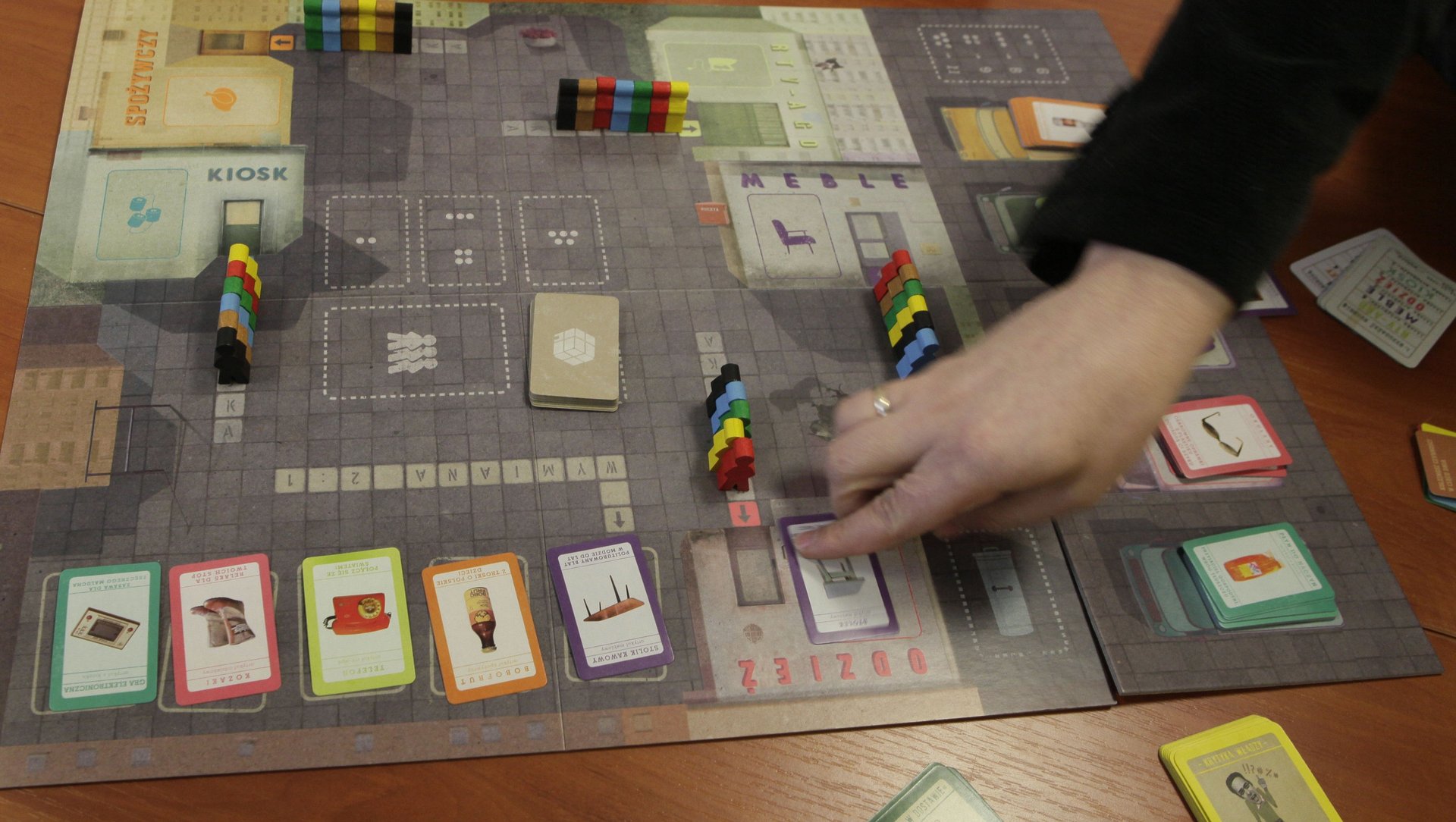Russia banned a Polish board game that simulates Communist-era shopping
The fraught relationship between Russia and Poland is playing out in an unexpected way: in a conflict over a board game. Russian authorities have decided that a popular Polish game that has been dubbed “Communist Monopoly” disseminates anti-Soviet content, and thus should not be sold in Russia’s stores.


The fraught relationship between Russia and Poland is playing out in an unexpected way: in a conflict over a board game. Russian authorities have decided that a popular Polish game that has been dubbed “Communist Monopoly” disseminates anti-Soviet content, and thus should not be sold in Russia’s stores.
The Russian version of the “Queue,” which simulates the experience of shopping in the empty stores of communist-era Poland, was released in Russia in November 2015. Several months later, the country’s consumer protection agency Rospotrebnadzor informed the game’s Polish producer TREFL that if it does not change the historical content of the game, it would have to take all of its products that are on the Russian market out of circulation, according to IPN, the Polish historical institute behind the game. IPN says that Russians have been allegedly filing complaints to authorities, outraged by a negative description of the communist system, and by the information that the Soviet Union had forcibly installed a communist regime in another country. For Poles, who lived under a Soviet-backed communist regime for nearly five decades, the historical irony is palpable.
IPN refuses to make the changes, and so “Queue” is no longer available in stores in Russia. The head of IPN’s education department, Andrzej Zawistowski, said that the charges were “absurd” and a result of Russia’s so-called “politics of memory.”
“When Russia takes the Soviet Union’s history as its own, it leads to some Russians thinking that criticizing the Soviet Union as a totalitarian regime is the same as attacking contemporary Russia,” Zawistowski told IAR, a Polish radio agency.
“Queue” was released in Poland in 2011, with translations into five languages. It aims to show a younger generation of Poles the exasperation of everyday life in communist-era Poland. Players have to buy all the products on their shopping lists in the five stores in the neighborhood–or on the black market. They have to wait for the products to be re-stocked, and in order to advance in the line, they can use cards such as “mother with child.” The game quickly became a hit, drawing long lines to get one, ironically.